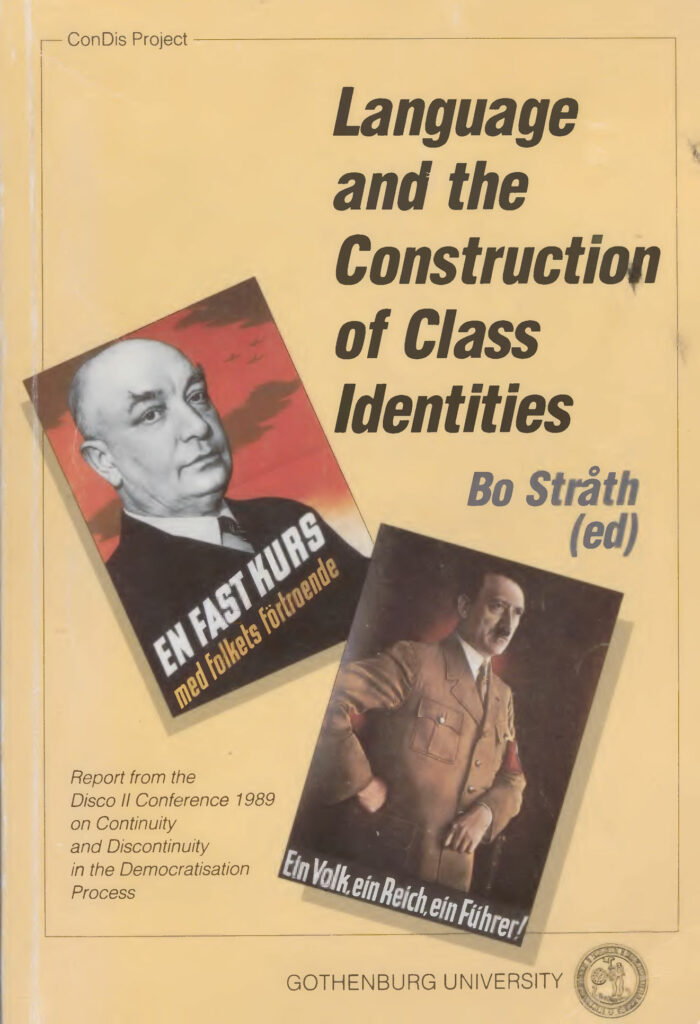
Bo Stråth (ed.), Language and the Construction of Class Identities. The Struggle for Discursive Power in Social Organisation: Scandinavia and Germany after 1800. Gothenburg University 1990
Abstract
The basic aim of the CONDIS Project (Continuity and Discontinuity, Long-term Factors of Conflict Resolution in the Democratisation of Scandinavia) at Gothenburg University is to study the democratisation processes in Scandinavia in international comparisons, especially with Germany. To shed light on this problem, some 60 scholars from Scandinavia, FRG, GDR and the US met in September 1989 for the DISCO II Conference (Democratization in Scandinavia in Comparison). DISCO I was held in 1987.
To understand and Explain the democratisation process, ‘culture’, in the sense of production of meaning through language and symbols, is used as a key concept in the analyses. This does not mean culture is seen as an autonomous or prime mover factor. It means that class identities and other identities are constructed through language in discursive struggles for power. Such identities cannot be theoretically derived from socioeconomic structures.
From a comparative Scandinavian-German perspective for the period since 1800, some of the key questions dealt with in this report are: What opportunities and what obstacles for democratisation were there in the discursive struggles and cultural praxis developed within the nobility, the bourgeoisie, the peasant societies, and the labour movements? Did these discursive and cultural practical developments promote social conflict, polarization, or class-bridging compromises? What interests were produced and expressed, and in what direction did language and culture orient action?
This book is a report from the DISCO II Conference on Continuity and Discontinuity in the Scandinavian Democratisation Process in Kungälv 7-9 September 1989.




































